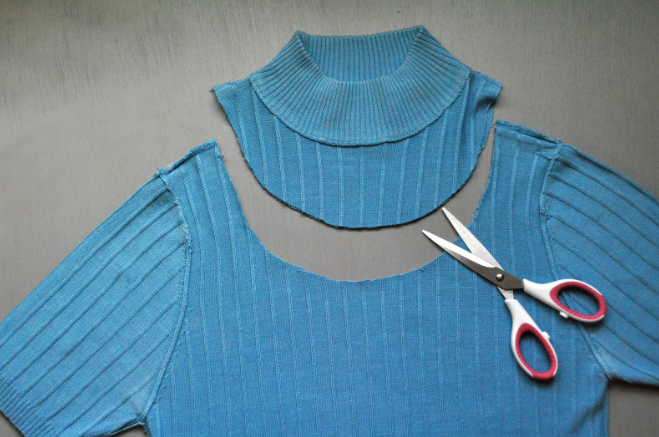
If you scroll through Instagram, browse Sephora’s shelves, or binge beauty content on YouTube, you’ve likely noticed the meteoric rise of indie beauty brands. With distinct aesthetics, bold founders, and highly engaged communities, these brands are doing more than just launching pretty products—they’re rewriting the rules of beauty entrepreneurship. But in an oversaturated and fiercely competitive market, what exactly makes a brand stand out to serious investors? Especially the kind who’ve seen hundreds of pitches and only say yes to one out of a hundred?
Enter Rich Gersten and Cristina Nuñez, the co-founders of True Beauty Ventures, a U.S.-based investment firm that’s become a go-to for early-stage beauty brands. Since launching their firm in 2020, they’ve built an impressive portfolio of 20 brands across skincare, haircare, wellness, fragrance, and color cosmetics—names like Dieux, Youthforia, Crown Affair, K18, and many others you’ve probably seen go viral online.
Their strategy might sound simple: build authentic relationships, invest in real potential, and trust their gut. But as Gersten puts it, “It’s not rocket science, but it’s not for the faint of heart, either.” In a recent conversation, the pair offered rare insight into exactly what they’re looking for in a brand—and what’s an immediate red flag.
At the heart of their philosophy? Vibe is everything.
According to Nuñez, the energy of the founder is often the first and most telling signal. “Sometimes you hop on a Zoom call or meet in person, and it just clicks. The founder has a clear superpower—they’re the lifeblood of the brand, they carry the vision. Maybe they’re not the most seasoned operator, but they don’t have to be. That can be fixed. Vision cannot.”
Conversely, if there’s no spark—if the founder can’t articulate their brand’s “why,” or seems fuzzy on the business basics—that’s often the end of the road. “We love founders who actively reach out, ask questions, seek feedback. That tells us they’ll be great long-term partners.”
A perfect example? Charlotte Palermino, the esthetician-turned-founder of Dieux, who started with organic engagement on Instagram, educating her followers and building genuine community. Another? Sofie Pavitt, a professional facialist whose brand focuses on acne-prone skincare, built largely through her own social presence and trust in her clinical expertise.
Those kinds of founders, who generate demand organically, are increasingly rare—and incredibly valuable. Especially in a post-iOS 14 era, where paid ads are expensive and unpredictable, being able to “sell without selling” is a massive advantage.
Of course, a magnetic founder alone isn’t enough. Proof of concept is essential.
As Gersten explains, “We often see small brands spreading themselves too thin—50 products, 20 retailers, no results. It’s a turn-off.” Instead, they’re more impressed by focus. A small, curated assortment. One or two anchor retail partnerships. Real traction. “We also pull from various data sources—EMV, sell-through, even conversations with buyers at Sephora, Ulta, and Target.”
Momentum matters. Most of the time, True Beauty Ventures avoids pre-revenue brands. “It can be frustrating to hear if you’re an early-stage founder,” Nuñez admits. “But we need to see that something is working.”
Financials also matter—especially gross margins.“Gross margin is critical,” says Nuñez. “It fuels everything: marketing, team growth, sustainability. And down the line, when a brand’s looking at exit opportunities, poor margins can kill the deal. If margins are fundamentally broken, we’re likely out. It’s just too much work to fix at our stage.”

But here’s the nuance: not every product needs to be revolutionary. Many new brands fall into the “launch for launch’s sake” trap, flooding the market with trendy but meaningless products. That kind of “newness addiction” may appeal to retailers in the short term, but it rarely leads to long-term brand love.
Instead, Nuñez and Gersten look for products that solve real problems, create visible results, and—this part’s key—move people. It could be something as simple as a deodorant that smells amazing (hello, Evolve Together), or a serum that’s developed by someone who knows their craft deeply. Innovation doesn’t always mean fancy technology. Sometimes, it’s just a clear benefit, beautifully executed.
Despite all the data and frameworks, the deciding factor is often intuition.
“For us,” Gersten explains, “pattern recognition is huge. After nearly 30 years in the industry, I trust my gut—and it’s shaped by experience. Does this brand make sense? Do I feel conviction?”
Nuñez agrees. “It has to be the full package: vision, traction, margin, product, authenticity. We’d rather see fewer launches done really well, with smart storytelling and real care in execution. That’s what leads to sustainable growth. But it also takes patience—on both the founder’s and investor’s side.”
The True Beauty team doesn’t just invest capital. They see themselves as strategic partners, working closely with brands as they scale. “Just like we expect founders to evolve, we evolve too,” says Nuñez. “We postmortem every deal, every pitch we pass on. We’re always trying to get better at spotting those early winners—and helping them become something unforgettable.”
For anyone building a fashion or beauty brand today, the takeaway is clear: it’s not about chasing viral trends or copying what’s already out there. It’s about building something real—something with a soul, a story, and a reason to exist. Because the truth is, consumers can smell inauthenticity from a mile away. But when they feel seen, heard, and genuinely helped? That’s when the magic happens.

And if you’ve got the grit to build that kind of brand—well, investors like Rich and Cristina are probably already watching.


